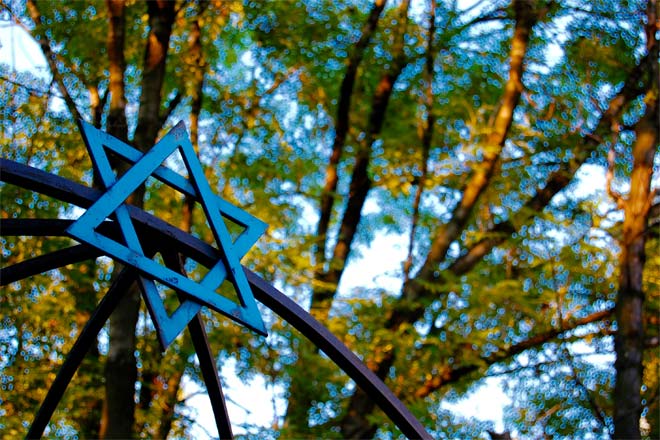|  |  |
| Use of statues and pictures | Permitted. |
Ancient times: Not allowed as it is considered Idolatry. Today, great artwork is encouraged. Statues of people are fine, but not as religious icons. |
|---|
| Founder | Kong Qiu (Confucius) |
Abraham, Isaac, Jacob, and Moses |
|---|
| Clergy | Bureaucrats. |
Ancient times: Hereditary privileged priest class--Kohen and Levi. Present day: Religious functionaries like Rabbis, Cantors, Scribes, Mohels. |
|---|
| Literal Meaning | Disciple of Confucius. |
Grateful person (named for Judah, who was named "gratitude" by his mother, Leah) |
|---|
| Scriptures | Analects of Confucius and Mencius; I Ching; Doctrine of Mean, etc. |
Tanakh (Jewish Bible), which includes the Torah |
|---|
| Belief of God | Depending on the religion held, usually Buddhist. Confucianism is not strictly a religion but rather advises a schema of social order. |
One God (monotheism), often called HaShem—Hebrew for 'The Name', or Adonai— 'The Lord'. God is the one True Creator. God has always existed, none existed before him and will exist forever. He transcends life and death. |
|---|
| Place of origin | China |
The Levant |
|---|
| View of the Buddha | Buddha is followed by many Confucians. |
N/A. |
|---|
| Practices | Visit to temples to pay homage to Ti'en (while it can refer to God or Heaven, it traditionally refers to social power), Confucius, and ancestors; To practice ('Jing zuo, ') or 'Quiet Sitting', a neo-Confucian seeking of self-cultivation. |
Prayers 3 times daily, with a fourth prayer added on Shabbat and holidays. Shacarit prayer in the morning, Mincha in the afternoon, Arvit at night; Musaf is an extra Shabbat service. |
|---|
| Life after death | Ancestors and heritage is important, but not worshiped. |
World to come, Reincarnation (some groups); unifying with God, there are different opinions and beliefs |
|---|
| Followers | Confucianists |
Jews, Jewish people |
|---|
| Original Language(s) | Mandarin or Cantonese |
Hebrew, Aramaic. Over the centuries, Jewish languages have also included Yiddish (among the Ashkenazi Jews of Europe); and Ladino (among the Sephardic Jews of Spain and North Africa). |
|---|
| Place of worship | Temples. |
Synagogues and temples, home, Western Wall of the Temple in Jerusalem |
|---|
| Human Nature | Humans should respect those who are superior to them. |
You must choose good from bad. You are responsible for your actions, not thoughts. |
|---|
| Geographical distribution and predominance | Asia. |
Existing in Israel for 1500 years, but the Romans in 70 AD kicked all Jews out. Jews are dispersed all over the world, at one time present in almost every country. Now the majority live in Israel, USA, Canada, Russia, France, England. |
|---|
| View of other Dharmic religions | Confucianists usually follow Buddhism, which is a Dharmic religion. |
N/A. |
|---|
| Holy Days | Chinese New Year, Teacher Day, Ancestor Day. |
Rosh Hashanah, Yom Kippur, Sukkot, Simchat Torah, Chanukah, Tu B'Shvat, Passover, Lag B'Omer, Shavuot. Shabbat (Sabbath). Sabbath most important—one day a week no work, just peace, joy and prayer. |
|---|
| Belief | Confucianism is sometimes mistakenly seen as a religion but it is really a philosophy of China, and of Asia as a whole. It stresses human conduct over belief in God. |
Jewish central belief is that there is only one God, and God has a special relationship, a contract, with them that they can fulfill by performing mitzvot. |
|---|
| Goal of religion | To have a structured society. |
To celebrate LIFE! To fulfill the Covenant with God. Do good deeds. Help repair the world. Love God with all your heart. Strong social justice ethic. |
|---|
| Holy days/Official Holidays | Chinese New Year, Teacher Day, Ancestor Day. |
Sabbath, Havdalla, Rosh HaShanah, Yom Kippur, Sukkot, Simchat Torah, Chanukah, Tu BiShvat, Purim, Passover, Lag BaOmer, Shavout. Holocaust remembrance. |
|---|
| Authority of Dalai Lama | N/A. |
N/A. |
|---|
| Offshoot religions | Cao Dai. |
Abrahamic religions -- Christianity and Islam. |
|---|
| Branches | Han Confucianism; Neo Confucianism; Contemporary Confucianism; Japanese Confucianism; Korean Confucianism; Vietnamese Confucianism; Boston Confucianism. |
Religious: Orthodox, Conservative, Reform, Renewel, Reconstruction. Traditions: Sephard, (Spain, Arab countries, Turkey). Ashkenazi: (Europe, Russia). MIzrachi: (Iraq, Persia, India). |
|---|
| Promised Holy one. | Coming of the Superior Man or Perfect Gentleman. |
Belief in the Coming of a Messiah. |
|---|
| Goal of Philosophy | Social Harmony. |
To live a proper and Holy Life. To appreciate Life in every way. To do Good Deeds. To live Ethically. To make choice based on Free Will. Universal Education for every Jew; to study, learn. read and write. |
|---|
| Concept of Deity | Most believe in One God, but this is not necessary since Confucianism is not a religion but a belief system about social ordering. |
Belief in one God and teachings of the tradition, prophets and rabbis. |
|---|
| Names of God | Ti'en, really referring to power; Shang Ti is the "Supreme Deity" that really refers to the position of the Emperor in a social order. |
HaShem, Adonai, |
|---|
| Original Languages | Mandarin or Cantonese |
Hebrew common till 500 BCE, Aramaic and Greek koine till 300 CE. Hebrew always for religious services. Local languages and different extinct and living Jewish languages like Carfati, Yiddish, Ladino, Judesmo etc |
|---|
| View of other Oriental religions | Usually follows other Oriental religions, especially Taoism. |
N/A. |
|---|
| Views on other religion | Sees no contraction in following more than one religion. |
Judaism is the chosen faith, however, others are good too, provided that they follow Noahide Laws. |
|---|
| Use of statues, images | Permitted. |
Forbidden |
|---|
| Virtue(s) in which religion is based upon | Respect |
Justice; strict adherence to God's law. Reading the Holy Books, and following the Commandments. |
|---|
| Views on the afterlife | To be worshipped by one's descendants and their families. |
Jews beleive in a human Soul, and Orthodox believe in A World To Come and a form of Reincarnation. Differing beliefs accepted. Very little discussion on afterlife. Focus is on time on Earth now. |
|---|
| Status of women | Socially inferior to men. |
Equal to men in eyes of God and in the Law (Halakha). Woman traditionally have been granted more equal rights than most other world cultures. Today, traditions among the Orthodox and the Reform movements differ greatly. |
|---|
| Principle | Key principles are Ren (benevolence), Yi (righteousness), Li (propriety/ritual), Zhi (Wisdom), Xin (trustworthiness), Xiao (filial piety), Zhong (loyalty), Min (diligence) and Hui (kindness). Ren, Yi, Li, Zhi, and Xin are the "Five Constants". |
By accepting the covenant, they choose to follow God's commandments. A unique ethnicity. Early monotheists. |
|---|
| Time of origin | Approx. 550 B.C.E.(Before Common Era) |
c 1300 BC |
|---|
| Views on Other Religions | Confucianists see no contradiction in following more than one religion. |
All people should obey 7 (Noahide) Commandments, a set of very basic moral laws. Non-Jews should follow their religion, and let Jewish people follow Judaism. |
|---|
| Can atheists partake in this religion's practices? | Yes. |
Yes. |
|---|
| Concept of God | One God. |
One God |
|---|
| View of Oriental religions | Confucianists usually follow other Oriental religions too. |
Jews accept others can have different religions. Jews must obey the law of the land, if ethical. |
|---|




Comments: Confucianism vs Judaism